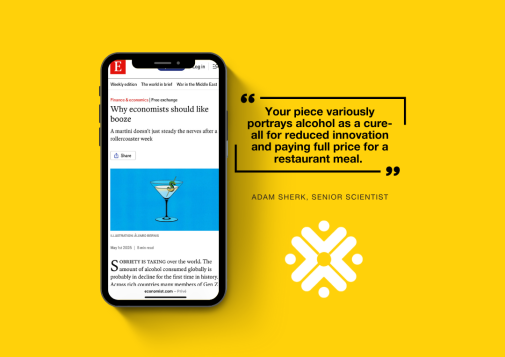CCSA’s Commitment to Inclusive and Equitable Research
CCSA has committed to integrating sex-, gender- and equity-based analysis (SGBA+) in all of our work. By looking at the whole body of research available and refining the results, we’re able to identify research and resources relevant to specific populations. This approach ensures our work is representative and comprehensive as we continue to learn more about substance use and addiction in Canada.
External Resources
CCSA is pleased to share the following external resources to showcase how and why you should integrate SGBA+ into your work in substance use and addiction.
Title | Organization | Specific to |
|---|---|---|
| Publications: Research Methods & SGBA | Centre of Excellence for Women's Health | Yes |
| Gender, Diversity and Inclusion - Statistics | Statistics Canada | No |
| Gender-Based Analysis Plus | Status of Women Canada | No |
| Sex, Gender and Health Research | Canadian Institutes for Health Research | No |
Get to know our team of experts
Miguel Andres Hernandez-Basurto, MPH
Senior Knowledge Broker
Area of Expertise:
Katarina Kane, MSc
Research and Policy Analyst
Area of Expertise:
Pam Kent, PhD
Director, Research and Emerging Trends
Area of Expertise:
Samantha King, PhD
Research and Policy Analyst
Area of Expertise:
Christine Levesque, PhD
Research and Policy Analyst
Area of Expertise:
Raadiya Malam, MPH
Research and Policy Analyst
Area of Expertise:
Heading
Contact an Expert
Latest CCSA Updates

Our Response: Why economists should like booze
As a research scientist in epidemiology and health economics, with a focus on alcohol and other substances, I found your article comparing alcohol non-users to free-riders to be light on fact and…
As a research scientist in epidemiology and health economics, with a focus on alcohol and other substances, I found your article comparing alcohol non-users to free-riders to be light on fact and…
Heading
Guidance, Tools and Resources
CCSA produces research-based publications, tools, and resources to support evidence-based decision-making on substance use health issues. Select your area of interest from the six categories below:
Heading
Substances
Delve into key resources on commonly used substances, such as alcohol, cannabis, opioids, stimulants and psychedelics. Learn about their effects, usage patterns, associated health and social consequences, and harm reduction considerations
Heading
Personal and Societal Impacts
Get insights on the personal and societal impacts of substance use and addiction , including gambling and impaired driving, and their effects on health, safety, and social well-being. Learn about effective prevention and harm-reduction strategies in various sectors.
Heading
Communities
Communities share common interests, values or goals, and interact with one another to build relationships and help networks. These materials support more inclusive, equitable, and community-informed responses to substance use and addiction. Dive into resources highlighting people with lived and living experience, stigma, sex- and gender-based analysis, Indigenous Peoples, and housing.
Heading
Treatment and Prevention
Explore medical, psychological, and social approaches aimed at helping individuals avoid or recover from substance use disorders. Get the facts on public health topics and learn about collaborative efforts to reduce stigma and promote more equitable, inclusive responses to substance use.
Heading
Youth
Learn about factors influencing substance use in young people, including childhood trauma and brain development, and get tools to support adult allies in leading meaningful, evidence-informed conversations with youth. Content promotes early prevention, harm reduction and supportive environments for youth up to age 25.
Heading
Substance Use and the Workplace
Substance use has a significant impact on the workplace, potentially affecting safety, productivity and employee well-being. Explore research on substance use in various industries. Resources support workplace leaders in building more supportive, stigma-free environments through practical strategies, improved approaches and initiative-taking education.

